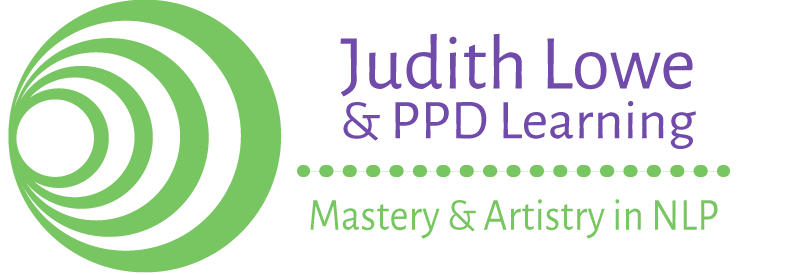October 2014 Masterclass: Stress Anxiety and Depression; Pathways to recovery with NLP
Stress, Anxiety and Depression; Pathways to Recovery and Wellbeing with NLP
"The greatest weapon against stress is to be able
to choose one thought over another.”
William James
What is Stress?
People with stress describe feeling under pressure, unable to cope or enjoy their lives, work and relationships. Their thoughts race wildly or else are fogged and slowed down – it’s hard to be productive, cheerful and resilient. They feel tense, maybe jumpy or tearful, often hopeless and incapable. The world - their world - has become an impossible place with no perceived choices or positive ways forward.
Although ‘stress’ is not a medical diagnosis it can lead to a breakdown in both physical and mental health. It’s a whole mind-body reaction to change and loss of equilibrium, which at that time, cannot be naturally managed and re-balanced.
There’s research about the kinds of external circumstances and changes that can trigger these conditions – including unemployment, relationship breakdown, bereavement, work pressures, illness etc.
There’s also growing understanding of the impact and changes in the person’s biological systems as the ‘fight – flight – freeze’ survival responses kicks in. Someone’s biochemical and physiological functioning can change, especially aspects like adrenaline and cortisol levels and the immune system, and create more complex, systemic health problems in the longer term.
Anxiety
‘Anxiety’ is often accompanied by feelings of dread, generalised fears and worry about future threats, about death and unwanted changes and losses, an inability to focus and concentrate or to be relaxed in the present moment. In the sufferer’s world there are uncontrollable and unavoidable challenges for which they feel unprepared and inadequate.
Depression
This can be more an experience of utter hopelessness, loneliness, unhappiness, suicidal thoughts, inability to function, ongoing loss of confidence and interest in life.
People are not able to thrive, be at their best… and they are suffering.
How can NLP help? What’s our unique ‘added value’?
“NLP is the study of the structure of subjective experience.”
It is part of the ongoing mission and vision of the field of NLP to create the tools and to extend and refine the coaching skills that can help people effectively learn, communicate and change.
We are still, uniquely, the field that builds ’good-enough’, personalised, working models of how an individual person is representing and filtering their reality - in all sensory channels, including their world view and key beliefs etc.
We are interested in what makes someone particularly effective, resourceful, resilient, creative and thriving in their life and what kinds of factors and patterns might prevent it.
We also think of people as being mainly resourceful and creative, seeking well-being and wisdom in a self-balancing, living system.
From an NLP perspective, ‘stress’ is a process. It’s an internal strategy that a person is generating consistently to achieve the experiences they are getting. It is being produced from an impoverished, personal, inner model of reality and has a structure that can be tracked and described.
‘Stress’, ‘anxiety’ and ‘depression’ are labels- ‘nominalisations’ in the NLP Meta Model - for complex, living processes which have got somehow ‘stuck’ in a pathological mode.
However, working with people in distress is not a technical and instrumental process. It’s a relational, compassionate, interactive and generative process requiring emotional intelligence and skilful, subtle, embodied, coaching know-how. It’s a journey together into the unknown.
Bringing together the pragmatic, constructivist, conscious ‘programming’ aspects of NLP with this kind of deeper, relational, unconscious connection with the coach is what constitutes the ‘art’ of NLP in practice.
Multi-level tools, skills and approaches with NLP
NLP has a huge contribution to make in this mental health area.
We have some tried and tested tools to help people explore and even transform many of these unhelpful, painful and ineffective patterns.
In this one-day Masterclass we will;
- Model and pattern out some of the key attributes of stress, anxiety and depression – including ‘triggers’, repetitive loops, critical inner voices, muscular tension, focus of attention, goals and resources versus problems and limitations, ‘positive intentions’, limiting beliefs, double binds etc Also use NLP models to scope out the ‘problem space’ of particular forms of these condition
- Explore and compare ‘CBT + Mindfulness’ and other medicalised and psychological approaches with NLP models – Meta Model, Sleight of Mouth, State Management, Ericksonian Hypnosis etc Note; NLP is not being positioned as a panacea here - but as a rich contribution to the available public range of coaching and therapeutic approaches
- Identify key NLP principles which support change and learning in this area – map/territory, mind-body integration, NLP Modelling, influence and communication in living systems, people have resources, ‘positive’ intention’, levels of learning, sensory acuity, behavioural flexibility, goal orientation, multiple perspectives and time frames etc.
- Identify and explore key NLP techniques which support change and learning in this area – including V-K Dissociation, Perceptual Positions, VAK Submodalities, State and Anchors, T.O.T.E Model and Strategies, Meta Model, Reframing, ‘Parts’ Conflict Resolution, 6 Step Reframe, Change Personal History, Re-Imprinting, Belief Change, Values, Meta Programmes, Well-Formedness Conditions etc.
- Discover and elaborate multi-level models of Resilience and Healing and generative, flexible, adaptive learning skills and tools. Self-regulation, somatic centring, conscious-unconscious rapport – also approaches to healing through art, nature, contribution and relationship
Who is this special one-day NLP Masterclass for?
This course is aimed at NLP Trainers, Coaches, Master Practitioners and Practitioners who want to expand and enrich their skills and practice, especially in this application area of everyday, mental health type issues.
It is offered as an opportunity for Post-Practitioner NLP Professional Development as well as for personal education and skills-development.
This Masterclass series is designed to inspire and support people with NLP training to deepen and sharpen their practice and to bring more skilled, thoughtful, warm-hearted, systemic NLP into the world.
